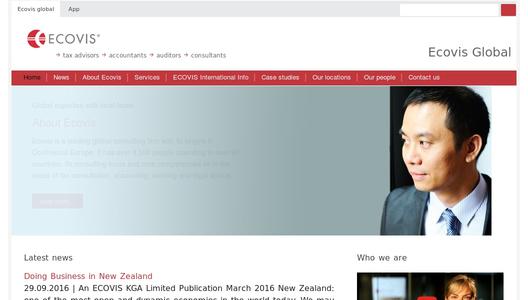Partners in ten countries responded to the question of what percentage of payment transactions is automatically registered in financial accounting systems in their respective countries. They all agree that they see this as an opportunity for their clients to reduce their administrative costs. Other advantages were perceived in greater transparency and in allowing accounting departments to produce figures up to date. However, there are marked differences in actual practice. In five countries, Brazil, Germany, Hungary, Mexico and South Korea, it is estimated that the automatic transfer of information to the accounting department is in the region of 80% to 90%. The most advanced country is South Korea, at 98%. Trailing far behind are Australia (25%), Turkey (10%) and Serbia (5%). In the case of China and Italy, Ecovis’ partner offices reported that no digital payment information at all is transferred automatically to accounting departments. As far as the financial authorities are concerned, in one of three countries it is required to keep safe records of cash transactions and to transfer this information to the financial authorities, in the case of China, Italy and South Korea once a month. In Latvia the only requirement is that cash receipts should be recorded using special protected software. In Serbia safe records of cash transactions need to be kept for tax control.
Although the general trend appears towards cashless transactions and an increase in digital forms of payment, there are however distinct differences from country to country. In most of the countries surveyed, the standard form of payment at the point of sale (POS), i. e. retail, mail-order and online transactions, payments in restaurants and bars, at the hairdresser’s, for repairs and other services, is still in cash. In Germany, for example, according to a survey conducted by the Deutsche Bundesbank, the figure is 79%, compared to Australia’s 47%, based on the number of transactions.
Even in South Korea, the country with the highest internet use, owing to excellent broadband coverage, 34% of payments are made at POS in cash. The most popular method of payment in this country is the credit card (almost 40%). There are two reasons for these preferences: Tax authorities allow an income reduction for the use of credit cards or cash receipts. This system was established in 1999 in order to improve the transparency of transactions at retail stores. On the other hand, the low use rate of electronic payment methods is caused by lack of confidence in the e-payment services which are usually provided by non-financial companies, says a report of the Bank of Korea.
In contrast, cash plays only a marginal role in France and the USA. In France the predominant form of payment at the check-out is by debit card in the form of electronic cash (45%), followed by funds transfers, direct debits, and, although in decline, by cheque, a form of payment which has practically vanished in Germany. This also applies to Australia, where, as Scott Hogan-Smith Ecovis partner in Sydney, says in confirmation, there has been “a sharp drop in the use of cheques.” Meanwhile internet payment systems such as PayPal constitute now a significant proportion (5%) of payment systems “down under”. In the USA, credit cards and electronic funds transfer (EFT) are the payment methods of choice at the POS.
Maria Varthaliti, partner in Athens, expects the popularity of payment by debit and credit cards to increase in Greece. This development is a result of the introduction of capital controls. Since then, no more than €420 in cash may be withdrawn per week, and even then only by using a debit card. Cash withdrawals using credit or prepaid cards are prohibited. “In Italy, electronic payment systems are gradually gaining ground,” says Emilio Martinotti partner of Ecovis in Turin. One reason for this is the upper limit of €1,000 for payments in cash, which, however, was increased to €3,000 in early 2016. As a general statement, the proportion of online and mobile banking users is expected to increase. “This will mainly give a boost to mobile payments using Smartphones and tablets,” says Alexander Weigert. One indication of this is the rapid expansion of mobile payments in South Korea, which increased from 3.7% in 2014 to 6.4% last year.
Partners of Ecovis in twelve countries responded to the question as to whether new regulations have been or are shortly to be implemented to govern fiscal obligations or accounting requirements in each country with respect to cashless and digital methods of payment. In four of the twelve countries responding, no changes have been introduced, whilst in the remaining eight they have been implemented to varying degrees. Scott Hogan-Smith of Ecovis’ partner firm in Sydney, reported a particularly remarkable development in Australia. “The Australian Taxation Office (ATO) operated a comprehensive data collection procedure for the fiscal year 2014 which applied to 18 specialised payment systems, among them PayPal. Furthermore the ATO has audited between 15,000 and 20,000 Ebay sellers who sold up to 10,000 Austrialian dollars (AUD) worth of product.”

